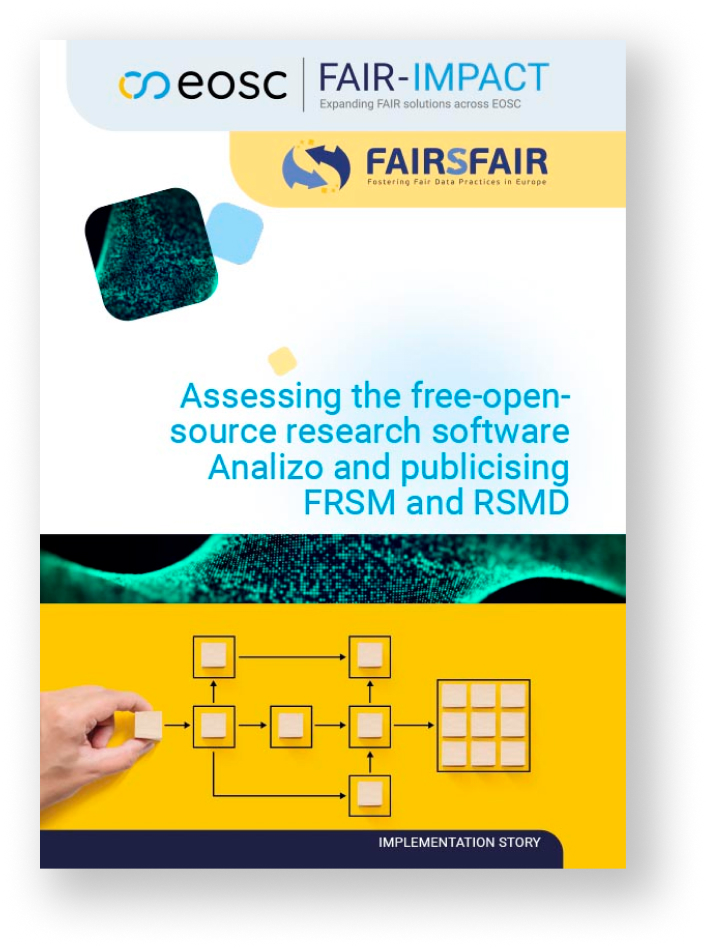Assessing the free-open-source research software Analizo and publicising FRSM and RSMD
Software plays a crucial role in academic research, not only as a tool for data analysis but also as a research outcome or result, or even the object of research itself. FAIR (Findable, Accessible, Interoperable, Reusable) research software can increase the transparency, reproducibility, and reusability of research. For this to happen, software needs to be well-described (by metadata), inspectable, documented and appropriately structured so that it can be executed, replicated, built upon, combined, reinterpreted, reimplemented, and/or used in different settings. The FAIR4RS Principles aim to guide software creators and owners on how to make their software FAIR. FAIR-IMPACT offered two support actions designed to enhance the FAIRness and impact of research software:
- Assessing and improving existing research software using a new extension of F-UJI which implements some of the metrics for automated FAIR research software assessment.
- Implementing the Research Software MetaData (RSMD) guidelines for better archiving, referencing, describing, and citing research software artefacts.
This FAIR Implementation Story outlines the specific aims and actions of Joenio Marques da Costa (Gustave Eiffel University and Federal University of Bahia) in relation to their participation in both support actions.
"I would like to see RSMD guidelines translated in other languages, especially in Portuguese in order to increase the visibility of this topic among the Brazilian community.".
Supported applicant: Joenio Marques da Costa, Université Gustave Eiffel and Federal University of Bahia
